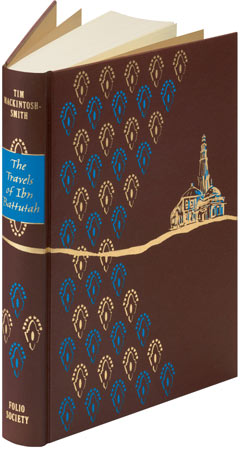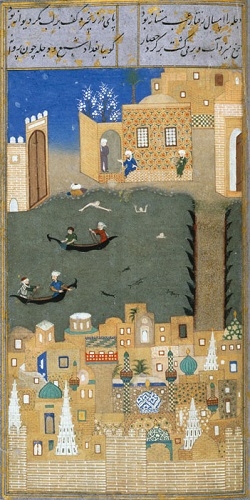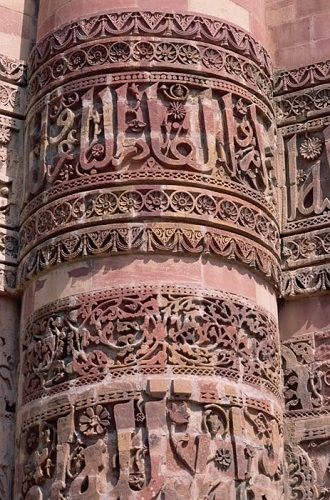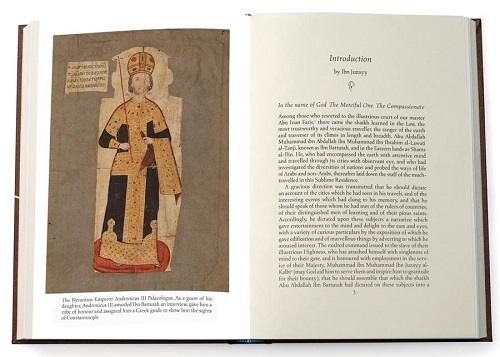In 1325, a young Moroccan law student set out from his home in Tangier to make the pilgrimage to Mecca. Having completed the hajj, Ibn Battutah continued onwards for an astonishing 75,000 miles on foot, by camel, mule, horse, junk and raft – the longest-ever journey accomplished by an individual traveller until the modern age. His travels, much more extensive than Marco Polo’s, reflect the widespread nature of Islamic civilisation: Ibn Battutah found familiar hospitality in Syria, Iraq, Asia Minor, Afghanistan, India, Sri Lanka and Somalia, among other places. After 29 years, he returned home and completed his Rihlah, or Travels: a narrative that made him the greatest travel writer of the Islamic world.
Ibn Battutah is a keen observer of different peoples and customs. He notes that Meccans ‘paint their eyes with kohl, and are constantly polishing their teeth with twigs of green arak-wood’. He describes the social security system in Damascus; a fallen meteor in Turkey; and Hindu widows burning themselves alive in north-west India (a sight so frightful that he faints and nearly falls off his horse). In Delhi, he befriends the Sultan, a generous and hospitable figure who nonetheless is capable of executing 350 men at a time. He travels as far as the Maldives, where he is scandalised by the half-naked women, and China – ‘the safest and best country for the traveller’. After retracing his steps from the Far East, he makes a final detour down through North Africa to Mali, where the houses and mosques are built of blocks of salt and people cover themselves in dust before the King. Lively, opinionated and full of idiosyncratic details, his Travels paints a fascinating portrait of medieval civilisation beyond Europe.
Tim Mackintosh-Smith is an Arabist, traveller and writer, now residing in Yemen, and one of the foremost authorities on Ibn Battutah. His abridgement of Ibn Battutah’s gigantic narrative is a major achievement in itself. Tahir Shah, a writer and film-maker who has travelled in the footsteps of Ibn Battutah, has written a new introduction for this edition. He describes first hearing Ibn Battutah’s name in his grandfather’s garden in Tangier, and praises Tim Mackintosh-Smith’s skilful selection: ‘Dazzling in its clarity, this pared-down version of the Rihlah is an absolute joy to read.’





